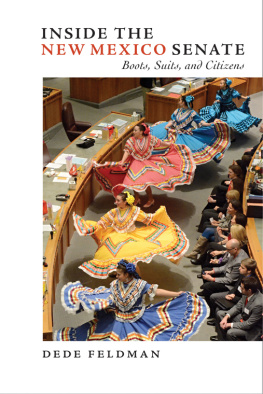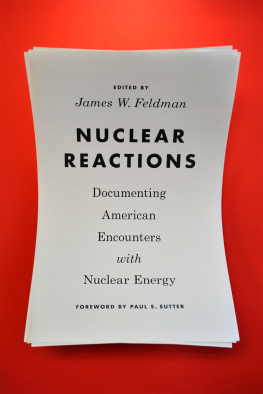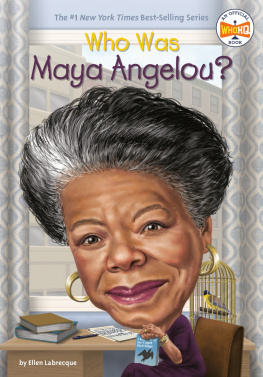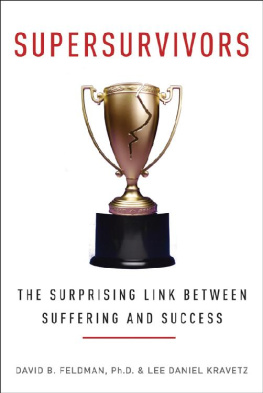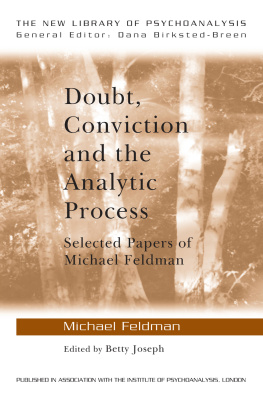2014 by the University of New Mexico Press
All rights reserved. Published 2014
Printed in the United States of America
19 18 17 16 15 14 1 2 3 4 5 6
THE LIBRARY OF CONGRESS HAS CATALOGED THE PRINTED EDITION AS FOLLOWS:
Feldman, Dede.
Inside the New Mexico Senate : boots, suits, and citizens / Dede Feldman.
pages cm
Includes bibliographical references and index.
ISBN 978-0-8263-5438-9 (pbk. : alk. paper) ISBN 978-0-8263-5439-6 (electronic)
1. New Mexico. Legislature. Senate. 2. New MexicoPolitics and government. I. Title.
JK8066.F45 2014
328.789071dc23
2013029208
Introduction and Acknowledgments
W ITH AN EXOTIC LANDSCAPE AND A MAJORITY-MINORITY POPULATION, New Mexicans consider their state to be different from all others. Theres even a column in New Mexico Magazine called One of Our Fifty is Missingmeaning New Mexico. The column features stories about hapless outsiders who want to know whether you need a passport and shots to visit, or extra postage to send something here, since its a foreign land. But when it comes to the state legislature, New Mexicos is not that different from other statehouses where legislators try each year to balance revenues and expenditures and struggle with spiking health care costs, education reform, and economic development. Whether they are from Mississippi, Maine, or New Mexico, lawmakers tangle with the National Rifle Association (NRA) and tobacco and pharmaceutical lobbyists. They struggle with redistricting and campaign finance reform; they come up with solutions to air pollution, drunk driving, and chronic disease that later find their way into federal law after theyve been road tested on the highways of various states. During times of national gridlock, state legislatures keep going, balancing their budgets, electing their leaders, and doing battle with their governorsor notdepending on the political divisions within each state.
But in many ways, New Mexicos legislature is unique. For years it was the only reliably Democratic statehouse in the West outside of California (Colorados legislative chambers have flip-flopped over a dozen times in recent years). It was organized as a part-time citizen legislature, where members receive no salary and cannot count on personal staff. Spanish might be spoken in the halls of the capitol as often as English, and Native American issues are often pivotal. Personal loyalty and regional identity make political outcomes unpredictable and, for most of the past few decades, New Mexico has been a swing state in national elections.
As you will see, the New Mexico legislature is a conglomeration of the new, the old, the rural, the urban, the boots and the suits. It is no less partisan than other legislatures, but its small size and family feeling create a different style for dealing with some of the big issues present in every state.
At the heart of the process are the legislators. Every other year, hundreds of them are elected from around the country to serve for the first time in their state legislature. In January 2013, as I was completing this book, sixteen hundred new legislators took their seats. It was a record number; there was a much higher turnover than usual.
Whether Democrats or Republicans, candidates who get elected to public office for the first time often feel they have been sent to their capitols to do big thingsespecially if they ran on a reform platform to either throw the bums out or take on the establishment. In 1996, I was elected to the New Mexico Senate from one of its most liberal districts as an avowed progressivebut I was not nave enough to think I could make a change overnight. I was optimistic, though, that once I learned the system I could find enough allies to advance an agenda of affordable health care for all, protection for New Mexicos breathtaking landscapes, and a system of financing campaigns to reduce the influence of special interests.
I didnt anticipate how tricky it would be to navigate the choppy waters of the New Mexico Senate, a forty-two-member chamber dominated by peculiar personalities, strange alliances between men I didnt know, and lobbyists I couldnt identify. I wasnt sure I could master the moves needed to succeed in what many of my fellow members seemed to treat as some kind of sporting event.
My first session in 1997 convinced me that the Roundhouse, as the New Mexico capitol is called, was a crazy, unpredictable place. Our leadership team, for example, was an odd couple composed of mercurial Manny Aragon, the president pro tempore, and a seeming country bumpkin named Tim Jennings, then majority leader. Often, during that first session, I couldnt understand what they were talking about or what their real motivations were. I assumed they were in favor of the well-being of New Mexicans and the defeat of archrival Republican Gov. Gary Johnson. But then Senator Jennings would start talking about elk wandering onto his ranch and eating his crops, or Senator Aragon would erupt into a tirade against rich people from Four Hills or the North Valley of Albuquerque who had it all, while his constituents in the South Valley were smelling shit (yes, shit is what he said) from the citys wastewater treatment plant. Meanwhile Sen. Shannon Robinson, from Albuquerques Southeast Heights, might, at any time, burst into an Irish ballad or even appear in costume.
The first bill that I voted on was rushed to the floor as if there was a fire going on. Under the bill, New York companies would automatically become resident New Mexico companies, even though their base of operations was in the Empire State. Written at the behest of eastside legislators to accommodate a New York bus manufacturer considering locating in Roswell, the bill didnt make sensebut it passed unanimously.
There didnt seem to be a method to the madness. Yet I needed to figure it out before I could get down to business.
The lack of progress on a coherent budget that year, the failure of the Senate to do much of anything on the floor of the chamber for weeks on endmuch less take substantive action on the pressing issues of the daywas really puzzling.
But what did I know? I was just off the boat, so to speak. When I asked the old timers, they said cheerfully, Dont worry; everything will work out in the end.
Hmmhere was a problem. I had work to do. My bills were not moving the way they should in order to pass out of each committee and come to the floor for a vote. And the end of the session was fast approaching. The chairman of the Public Affairs Committee, Sen. Shannon Robinson, seemed nice enough as he smoked cigarettes and joked with a circle of buddies I later found out was the committees staff. Yet somehow my bills didnt get scheduled. He was particularly noncommittal about when he would schedule a bill I was sponsoring with the help of then attorney general Tom Udall to license the retail sellers of tobacco products so a licensee could be fined if the retailer sold cigarettes to minors (which is illegal under federal law). His method of hearing bills seemed haphazard, and it was only after repeated entreaties that he finally heard mine.
Sen. Fernando Macias, the handsome chairman of the Senate Judiciary Committee (also called Fernandos Hideaway), to which my bill to limit campaign contributions was assigned, at least told me he had some reservations and suggested that I prepare an amendment if I wanted to get the bill through. But I was still clueless about the logjam of bills that had passed committees but were not being debated on the floor.

